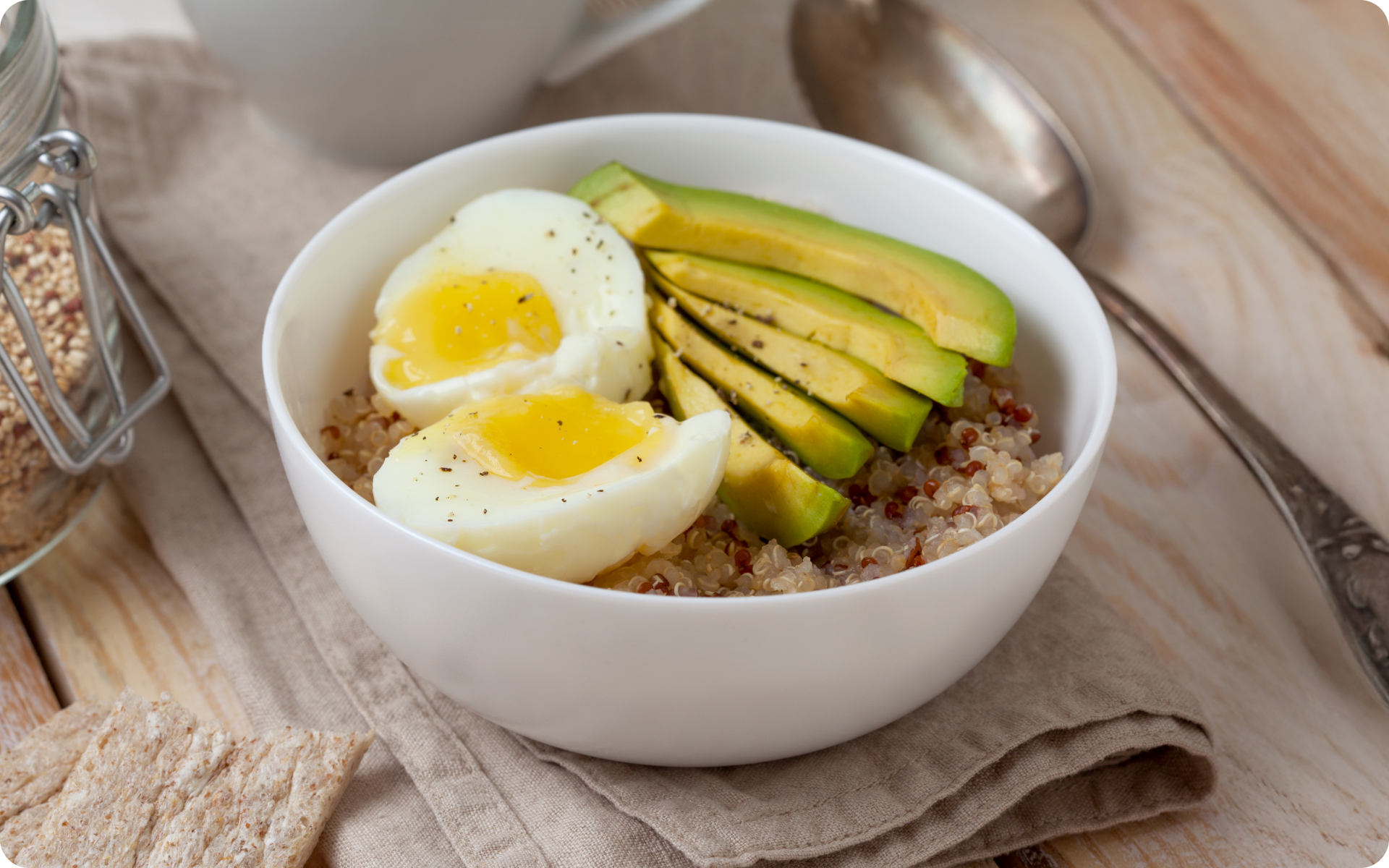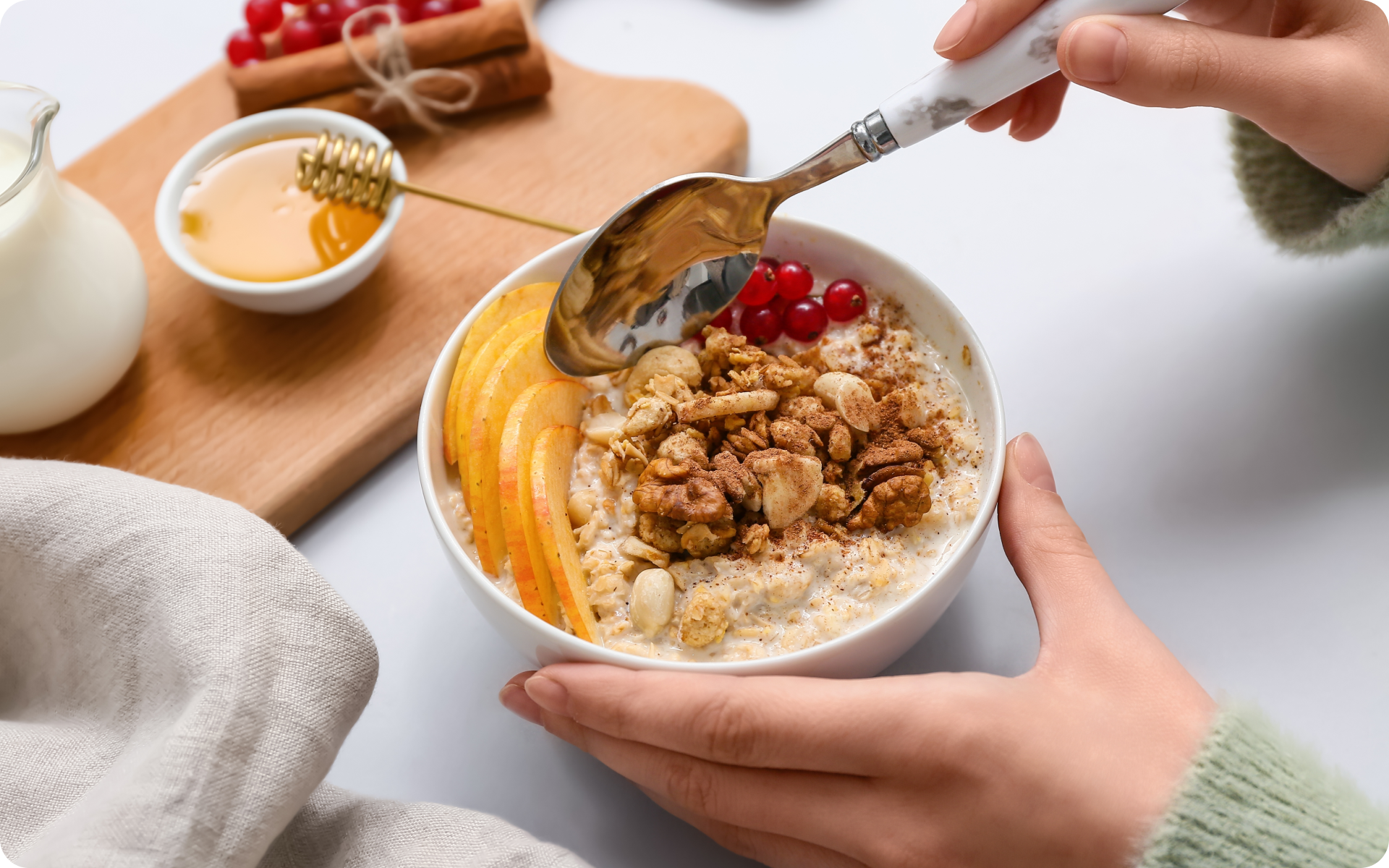A growing number of people are moving to low-carb diets. The keto diet in particular is all the rage now due to its effectiveness. The 2,000-calorie keto diet is an example of a common low-carb diet that can help you lose weight efficiently without reducing your caloric intake to unhealthy levels.
The keto diet is not a new thing. Medical experts introduced this low-carb, high-fat eating plan about a hundred years ago in the 1920s with the aim of helping treat epilepsy in children.
As time passed, people slowly started picking up on the benefits associated with the keto diet. This is why the keto diet has become quite popular, particularly in the fitness world.
What Is a Ketogenic Diet?
A ketogenic diet, or keto diet, is a diet that focuses on drastically reducing the intake of carbs in your diet. A decrease in the intake of carbs is followed by an increase in the intake of fats. This is why most people refer to it as a low-carb, high-fat diet. The protein intake in this kind of diet remains fairly similar to any other type of diet.
How Does a Ketogenic Diet Work?
A keto diet involves removing most of the carbohydrates from your diet until your body and brain are forced to utilize another form of energy (12). When you eat less than 50 grams of carbohydrates a day, your body eventually runs out of fuel, which is usually blood sugar.
This takes three to four days to happen on average, but it can take up to 2-3 weeks. After this, your body will start to break down fats and proteins for energy. This process is called ketosis (15).
Reasons why BetterMe is a safe bet: a wide range of calorie-blasting workouts, finger-licking recipes, 24/7 support, challenges that’ll keep you on your best game, and that just scratches the surface! Start using our app and watch the magic happen.
Can You Lose Weight on a 2,000-Calorie Diet?
A 2,000-calorie diet can help you lose weight, particularly if it’s a well-planned one such as the 2,000-calorie keto meal plan or the 2,000-calorie low-carb diet. (15) Both of these diets emphasize cutting back on carbohydrates, which helps many people lose weight.
A 2,000-calorie keto meal plan places a strong focus on eating foods that are high in fat, moderate in protein, and incredibly low in carbohydrates. This causes the body to go into a state that is known as ketosis, in which it starts to burn fat for energy rather than carbs. The body burns stored fat in this metabolic state, which can help with weight loss. Avocados, meats, eggs, nuts, seeds, and healthful oils are among the foods included in this plan.
Similar to the keto plan, a 2,000-calorie low-carb diet restricts carbohydrate intake, but it may not be as rigorous. It emphasizes cutting back on carbohydrates while maintaining a healthy balance of proteins, fats, and non-starchy vegetables. (3)
Keep in mind that losing weight is dependent on several variables, including personal metabolism, degree of activity, and general health. A 2,000-calorie diet may help some people lose weight, but it may also cause some people to stay the same or gain weight. Finding the right dietary strategy for your body is essential, and you should speak with a medical professional before beginning any new diet plan.
Different Types of Ketogenic Diets
There are several variations of the keto diet (14):
Standard Ketogenic Diet (SKD)
This ketogenic diet involves very low carb intake, moderate protein intake, and high fat intake. It contains the macronutrients in the following percentages: fats have the highest intake at 75 percent, proteins have an intake percentage of 20, and carbohydrates are only 5 percent. This is the most common ketogenic diet.
Cyclical Ketogenic Diet (CKD)
This ketogenic diet involves periods of higher carbohydrate refeed. This means you have a period of low carb intake followed by a period of high carb intake in a week. This could be five days of following a ketogenic diet and two days of high carb intake.
Targeted Ketogenic Diet (TKD)
This type of ketogenic diet allows you to add carbohydrates around workouts.
High-Protein Ketogenic Diet
This is similar to a standard ketogenic diet. The only difference is that with this type of ketogenic diet, you have a higher intake of protein. The ratio is often 60 percent fat, 35 percent protein, and 5 percent carbs.
Read more: Is Pho Keto? The Ultimate Guide to Enjoying Pho on a Low-Carb Diet
Benefits of a Ketogenic Diet
Keto diets are associated with many benefits. This is the main reason people all over the world have started to move toward low-carb, high-fat diets. Here are some of the benefits of following a ketogenic diet:
Ketogenic Diets Help with Weight Loss
People are now more conscious of their health and weight than people in previous generations. This means all methods, diets, and exercises that can help keep people healthy and at their desired weight are being used. A good example is the keto diet.
Ketogenic diets can help with weight loss as they help lose fat, they help preserve muscle mass, and they improve many markers of diseases. Experiments have found keto diets to be helpful when it comes to weight loss.
Let’s take a look at an experiment that demonstrates these keto diet abilities.
A study was performed on 53 healthy, obese female volunteers. The experiment took six months. The women were divided into two groups.
- One group followed a low-carb diet
- The other group followed a low-calorie, low-fat diet
After the six months, the following were observed:
- The women on the low-carb diet lost more weight than those on the low-calorie, low-fat diet.
- The women on the low-carb diet also lost more body fat than those on the low-calorie, low-fat diet.
- The women on the low-carb diet lost almost 2.2 times more weight than the women in the low-calorie, low-fat group. They also lost 2.2 times more body fat than the other group. (9)
A keto diet was also compared to a diet based on Diabetes UK’s dietary guidelines. People in the low-calorie group lost more weight than those on the diet based on Diabetes UK’s dietary guidelines. The study lasted three months.
People on the low-carb diet lost 6.9 kgs compared to 2.1 kgs by people in the other group. This is slightly more than three times more weight than people on the diet based on Diabetes UK’s dietary guidelines. (7)
How Do Ketogenic Diets Actually Help You Lose Weight?
The simple answer is higher protein intake. Some keto diets lead to the intake of more proteins. Proteins have many weight loss benefits, including:
- The most significant benefit is that proteins reduce appetite and hunger levels. (6)
- High protein intake also reduces cravings and desire for late-night snacking due to its filling effects.
- High protein intake boosts metabolism and increases the amount of energy you burn. (1)
So, how does an increase in protein from a ketogenic diet help the body? Let’s take a look at the processes involved. (6)
- Gluconeogenesis: As mentioned earlier, when you’re on a ketogenic diet, your body is forced into a state of ketosis. This means your body is using fats and proteins to produce ketone bodies that will be used as fuel. This process leads to burning additional fats every day, which leads to weight loss.
- Food elimination: Most of the common foods we eat are carbohydrates. When you cut down on carbs, it also means you don’t have as many food options as before. This can help reduce the calories you consume as without more options, you become easily bored with the foods you can eat, which results in you eating less.
- Increased fat burning: When you’re on a ketogenic diet, your body needs fats for energy. This means it burns more fat when you’re resting, doing your daily activities, or even exercising, as the body needs energy for all these functions to occur.
- Increased insulin sensitivity: Ketogenic diets can drastically improve insulin sensitivity. This helps improve your body’s metabolism and its fuel utilization.
- Decreased fat storage: As ketosis is constantly happening, stored fats are constantly being converted to energy. Keto diets may also help reduce the process of converting glucose into fats. This process is known as lipogenesis.
BetterMe app will provide you with a host of fat-frying fitness routines that’ll scare the extra pounds away and turn your body into a masterpiece! Get your life moving in the right direction with BetterMe!
Ketogenic Diets and Diseases
Keto diets are known to help control or prevent certain diseases. This adds to the many advantages that are associated with keto diets. Here’s all you need to know about ketogenic diets and certain diseases.
Diabetes and Prediabetes
Diabetes is characterized by changes in metabolism, high blood sugar, and impaired insulin function. Keto diets are known to help lose excess fat. Excess fat is closely linked to type 2 diabetes, prediabetes, and metabolic syndrome.
- A study showed that keto diets improve insulin sensitivity by 75 percent. (10)
- Another study on people with type 2 diabetes found that a third of participants were able to stop using diabetes medication. About 50% of participants were able to reduce their medication. (8) This was after participants were put on a keto diet.
This kind of diet may help you lose weight, which is good considering the association between type 2 diabetes and weight.
Heart Diseases
Keto diets can help improve risk factors that are associated with heart conditions. Some of the risk factors include body fat, HDL cholesterol levels, blood pressure, and blood sugar.
How do low-carb diets help with this? Keto diets may help lower the levels of insulin, which helps reduce or stop cholesterol production. This means you’re less likely to have high blood pressure, hardened arteries, heart failure, and other heart conditions.
Cancer
Low-carb diets could have an impact on certain types of cancer. Such diets may also help slow tumor growth. Insulin is a hormone that allows your body to use or store sugar as fuel.
Keto diets make you burn through this fuel quickly, so there is no need to store it. This leads to your body producing less insulin. These lower levels of insulin could help protect against some kinds of cancer and even slow the growth of cancer cells.
Alzheimer’s Disease
Keto diets could also help control Alzheimer’s disease. Some research has studied potential symptom reduction and how the keto diet could slow its progression, which is promising.
Epilepsy
Low-carb diets have been used for treating and controlling epilepsy in children since the 1920s. Keto diets may help reduce seizures in epileptic children.
Parkinson’s Disease
Keto diets help improve symptoms that are associated with this particular disease.
Acne
This skin condition is linked to carbohydrates, so cutting down may help reduce the occurrence of it.
Polycystic Ovary Syndrome (PCOS)
This is when a woman’s ovaries become larger than normal and small fluid-filled sacs form around the eggs. High levels of insulin cause this. Keto diets may help reduce the insulin made in your body, in addition to the amount of insulin your body needs. Together with exercise, this may help treat this condition. (16)
Side Effects of a Ketogenic Diet
As with most things, keto diets also have some side effects, including:
- Mild low blood sugar
- Indigestion
- Kidney stones or high levels of acidity
- Keto flu – this occurs when you start your keto diet and is characterized by frequent headaches, weakness, irritability, bad breath, and fatigue
Is a 2,000-Calorie Keto Diet Healthy?
All the benefits of a low-carb diet plan as outlined above will be experienced with the 2,000-calorie food plan. It’s important to remember the side effects that come with such diets. Before you jump into this meal plan, you should consult a dietitian to find out whether this diet plan will work for you.
Sample Week Keto Diet 2,000-Calorie
Now that you’ve seen the advantages of a low-carb diet, you must be interested in this food plan. Making a food plan can be difficult, but that shouldn’t worry you (13, 4). The BetterMe team has created an example of a 2,000-calorie keto diet that you can follow:
MONDAY
Breakfast
- 1 serving of bacon, egg, and cheese breakfast casserole
Fat: 38g, Protein: 43g, Carbs: 2g, Total Calories: 437
Lunch
- 1 serving of mushroom bacon skillet
- 2 cups romaine topped with ½ serving creamy lemon keto vinaigrette and 1 tablespoon chia seeds
Fat: 23.5g, Protein: 17g, Carbs: 11g, Total Calories: 400
Snack
- 1 citrus keto green smoothie
Fat: 20g, Protein: 3g, Carbs: 3g, Total Calories: 207
Dinner
- 1 serving of cheesy broccoli meatzza
Fat: 24g, Protein: 32g, Carbs: 7g, Total Calories: 375
Dessert
- 1 serving of chocolate mint keto ice cream
Fat: 15g, Protein: 2g, Carbs: 2g, Total Calories: 155
TUESDAY
Breakfast
- Savory chicken sausage egg muffin, 1 medium avocado, and 3 strawberries
Fat: 30g, Protein: 13g, Carbs: 20.5g, Total Calories: 389
Snack
- Iced bulletproof coffee
Fat: 12g, Protein: 0g, Carbs: 1g, Total Calories: 128
Lunch
- Keto cobb bowl
Fat: 49g, Protein: 21g, Carbs: 7g, Total Calories: 557
Snack
- Lemon bar fat bombs
Fat: 32g, Protein: 4g, Carbs: 10g, Total Calories: 338
Dinner
- Keto shrimp scampi and 2 tablespoons grated parmesan
Fat: 1.8g, Protein: 54g, Carbs: 2g, Total Calories: 420
Dessert
- 2 low-carb fudge pops
Fat: 20g, Protein: 3g, Carbs: 3g, Total Calories: 207
WEDNESDAY
Breakfast
- Avocado breakfast bowl
Fat: 40g, Protein: 25g, Carbs: 3g, Total Calories: 500
Snack
- Macadamia nut fat bombs
Fat: 34g, Protein: 2g, Carbs: 2g, Total Calories: 198
Lunch
- 2 servings of barbeque chicken
Fat: 19g, Protein: 55g, Carbs: 22g, Total Calories: 689
Dinner
- Caprese chicken and zucchini spears
Fat: 23g, Protein: 71g, Carbs: 25g, Total Calories: 596
THURSDAY
Breakfast
- 1 serving of Gordon Ramsey’s scrambled eggs
Fat: 40.1g, Protein: 19.3g, Carbs: 1.4g, Total Calories: 444.9
Snack
- 2 servings of tuna avocado salad
Fat: 12g, Protein: 30.3g, Carbs: 7.9g, Total Calories: 248g
Lunch
- 2 servings of turkey lettuce roll-ups and avocado
Fat: 32.1g, Protein: 22.3g, Carbs: 22.4g, Total Calories: 440
Snack
- 4 cups of strawberry flavored water and 2 servings of cheese slices
Fat: 19.3g, Protein: 13.9g, Carbs: 4.3g, Total Calories: 245
Dinner
- 1 serving of paleo Chinese egg foo young and baked spinach chips
Fat: 36.8g, Protein: 34.2g, Carbs: 19.4g, Total Calories: 534
FRIDAY
Breakfast
- Cheese egg white omelet
Fat: 35g, Protein: 60g, Carbs: 5g, Total Calories: 590
Lunch
- 2 servings of barbeque chicken
Fat: 19g, Protein: 55g, Carbs: 22g, Total Calories: 689
Dinner
- Easy garlic chicken, zucchetti, and artichokes
Fat: 36g, Protein: 41g, Carbs: 16g, Total Calories: 624
Read more: 6 Keto Sushi Recipes to Eat on a Low-Carb Diet
Foods To Eat in a 2,000-Calorie Keto Diet Plan
When you’re following a 2,000-calorie keto diet weight loss plan, you should incorporate the following foods: (2)
- Seafood
- Low-carb vegetables such as asparagus and broccoli
- Cheese
- Avocados (11)
- Meat and poultry
- Eggs
- Coconut oil
- Plain Greek yogurt and cottage cheese
- Olive oil
- Nuts and seeds
- Berries
- Butter and cream
- Olives
It goes without saying that you should avoid processed food, soft drinks, and fast food.
FAQs
Is it possible to eat too many calories on keto?
It’s fascinating to explore a variety of options, such as keto sushi recipes, keto noodles, and keto-friendly Thai food, while navigating the low-carb, high-fat principles of the ketogenic diet. (5)
However, under this dietary strategy, it is essential to keep an eye on caloric intake for successful weight control, no matter what diet you’re following. Here’s a breakdown of key considerations:
- Calorie Management: Even though keto substitutes such as low-carb noodles or cauliflower rice for sushi are appealing, it’s important to keep an eye on your overall calorie intake to prevent impeding weight loss.
- Portion Moderation: Consuming ketogenic foods, such as Thai food prepared with coconut milk, requires careful portion management to control caloric intake.
- Ingredient Impact: With keto-friendly Thai food recipes, ingredients such as coconut milk provide taste but also calories. Enjoying these foods in moderation will help maintain a healthy calorie balance.
- Macros Balance: The key to keto is to emphasize fats while limiting carbohydrates, but keeping your intake of fats, proteins, and carbohydrates in balance also helps keep your overall calorie intake under control.
- Caloric Density Awareness: Even in keto substitutes, foods such as cauliflower can have a high calorie content. Reducing the amount you consume will go a long way toward controlling total calories.
- Caloric Deficit Focus: Regardless of the dietary strategy, on the keto diet, it is essential to keep a calorie deficit for weight loss. Even with adherence to keto-friendly diets, excessive calorie intake can hinder development.
Can you build muscle on keto?
A ketogenic diet can help you gain muscle mass. As it promotes fat burning, keto is frequently linked to weight loss, but when it is paired with the right exercise and dietary plans, it can also help build muscle. Here’s how:
- Protein Focus: Consuming enough protein is essential for building muscle. Add sources such as fish, meat, eggs, tofu, or tempeh.
- Strength Training: When you’re following a ketogenic diet, use resistance training to encourage muscle growth.
- Caloric Balance: Adjust your intake if necessary. Some people may require a caloric surplus for muscle growth. Keto foods can be calorie-dense to support this.
- Fat Adaption: By using fats as a consistent energy source, keto helps with exercise.
- Consistency Counts: Building muscle takes time and consistency in both training and diet, regardless of the approach you use.
It’s important to remember that everyone reacts differently to diets. Some people grow muscle on the ketogenic diet, whereas others may prefer a different dietary strategy. You are advised to speak with a dietitian or other healthcare provider before you make any big dietary adjustments for the purpose of gaining muscle.
Is 100 grams of protein too much on keto?
Typically, many people find that 100 grams of protein on a keto diet isn’t too much, particularly those who are active or committed to maintaining or growing muscle. While consuming a lot of protein may have little impact on ketosis and will vary depending on personal demands, this quantity is often appropriate for maintaining well-being and muscular health.
However, the ideal amount of protein varies from person to person, so it’s important to pay attention to the way in which your body responds and seek advice from a nutritionist or dietitian if necessary to customize your protein consumption to your unique needs and physiology.
The Bottom Line
The 2,000-calorie keto diet is an efficient diet to follow. This is because 2,000 calories is sufficient to sustain you throughout the day. However, you should consult a dietitian before you start this meal plan. They will advise you whether or not this meal plan is suitable for you as there are many things that must be considered before you jump into it.
If carefully followed, the 2,000-calorie ketogenic diet will help you lose weight in the ways mentioned above.
DISCLAIMER:
This article is intended for general informational purposes only and does not serve to address individual circumstances. It is not a substitute for professional advice or help and should not be relied on for making any kind of decision-making. Any action taken as a direct or indirect result of the information in this article is entirely at your own risk and is your sole responsibility.
BetterMe, its content staff, and its medical advisors accept no responsibility for inaccuracies, errors, misstatements, inconsistencies, or omissions and specifically disclaim any liability, loss or risk, personal, professional or otherwise, which may be incurred as a consequence, directly or indirectly, of the use and/or application of any content.
You should always seek the advice of your physician or other qualified health provider with any questions you may have regarding a medical condition or your specific situation. Never disregard professional medical advice or delay seeking it because of BetterMe content. If you suspect or think you may have a medical emergency, call your doctor.
SOURCES:
- 10 Science-Backed Reasons to Eat More Protein (2019, healthline.com)
- 16 Foods to Eat on a Ketogenic Diet (2017, healthline.com)
- 19 High-Protein, Low-Carb Meals That Will Keep You Satisfied, According to Dietitians (2023, prevention.com)
- 2000 Calories Atkins-Keto Diet Plan (n.d., eatthismuch.com)
- A Full List of the Best High-Protein, Low-Carb Foods (2023, goodhousekeeping.com)
- A Ketogenic Diet to Lose Weight and Fight Disease (2017, healthline.com)
- A low-carbohydrate diet is more effective in reducing body weight than healthy eating in both diabetic and non-diabetic subjects (2007, pubmed.ncbi.nlm.nih.gov)
- A low-carbohydrate, ketogenic diet to treat type 2 diabetes (2005, pubmed.ncbi.nlm.nih.gov)
- A randomized trial comparing a very low carbohydrate diet and a calorie-restricted low fat diet on body weight and cardiovascular risk factors in healthy women (2003, pubmed.ncbi.nlm.nih.gov)
- Effect of a Low-Carbohydrate Diet on Appetite, Blood Glucose Levels, and Insulin Resistance in Obese Patients with Type 2 Diabetes (2005, acpjournals.org)
- Ketogenic Diet: Your Complete Meal Plan and Supplement Guide (2019, bodybuilding.com)
- Ketogenic Meal Plans: Lose Fat, Preserve Muscle (n.d., muscleandstrength.com)
- The Easiest 7-Day Keto Meal Plan Under 1,900 Daily Calories (2019, perfectketo.com)
- The Ketogenic Diet: A Detailed Beginner’s Guide to Keto (2018, healthline.com)
- What 2,000 Calories Looks Like in a Day (Keto Edition) (2019, blog.myfitnesspal.com)
- What’s a Ketogenic Diet? (n.d., webmd.com)












